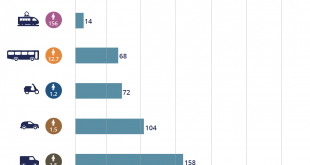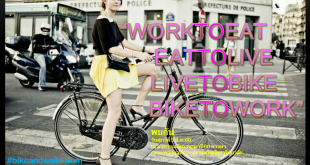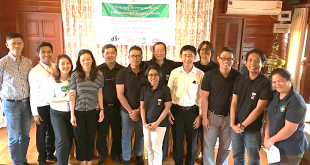Supportive Systems and Structures for Walking and Cycling in Daily Living
The 5th National Health Assembly, having considered the report on Supportive Systems and Structures for Walking and Cycling in Daily Living[1],
Realizing that inadequate physical exercise contributes to overweight and obesity and is a main cause of sickness and death from chronic non-communicable diseases and that a choice of motorized transport for short-distance travel instead of walking and cycling accounts for an unnecessary increased fuel use, a major cause of Thailand’s imbalance of trade, as well as increased emission of greenhouse gases, and that every group of people has difficulty in using walkways,
Concernedabout national economic losses as a result of sickness and death from chronic non-communicable diseases, pollution and accidents, imbalance of trade, loss of travel time, climate change, social losses due to lower quality of life, and the community spirit,
Appreciatingthe past efforts of various government agencies and people’s organizations in promoting walking and cycling for short-distance travel instead of using motorized vehicles even though their efficiency is still rather limited,
Notingthat policies, laws, and various measures concerned are not up to date and not efficiently enforced and that there are no provisions that directly and indirectly promote walking and cycling,
Seeingthat to make Thai society better lend itself to walking and cycling in daily living it is necessary for all sectors concerned to be involved in the integrative management of the matter, to generate and disseminate knowledge, launch awareness-raising campaigns and promote the supportive system and structure for walking and cycling in daily living, as well as developing and enforcing legal measures in a serious manner with a view to ensuring a sustainable transport system and development of a healthy city,
Has, therefore, passed the following resolutions:
1. Requesting the National Health Commission to bring the matter to the cabinet to consider the issue of having supportive systems and structures for walking and cycling in daily living and to assign the following agencies to consider taking appropriate action:
1.1 The Prime Minister’s Office to adopt a policy making walking and cycling a major mode for short-distance travel and coordinate with other public agencies in its implementation;
1.2 The Ministry of Transport to promote connecting walking and cycling with the public transport systems and to make the issue of being considerate to all groups of pedestrians and cycle users part of the driving license tests;
1.3 The Ministry of Interior and local government organizations to amend ministerial regulations issued under the Building Control Act and bylaws requiring owners of large buildings and public buildings, including public transport terminals, to make available convenient, safe and sufficient parking spaces for cycles, as well as requiring provincial authorities to support walking and cycling in a concrete manner;
1.4 The Department of Local Administration to make walking and cycling an agenda for local administrative organizations to put in place an infrastructure suitable and safe for walking, uses of walkways and traveling by people with disabilities, and cycling, to set speed limit zones for motor vehicles and lanes for cycles, with clear symbols and signs in the community areas, disseminate information and launch campaigns on a regular basis to stimulate public awareness on walking and cycling in daily living;
1.5 The Ministry of Education to require its education institutes to have courses to provide knowledge and develop skills for correct and safe walking and cycling, e.g. providing knowledge about hand signals and use of cycle lights and supporting the use of personal safety equipments on a continuing basis to students, and promoting walking and cycling to schools through the involvement of students, their parents and the community as well as providing walking and cycling facilities within the education institutes;
1.6 The Ministry of Industry to promote business operators and industries that manufacture goods and provide services relating to walking and cycling as well as equipments that facilitate the travel of people with disabilities in good quality and at a fair price;
1.7 The Ministry of Public Health, Ministry of Tourism and Sports to campaign for the general public to walk and cycle in daily living and support activities designed to promote walking and cycling on a continuing basis;
1.8 The Ministry of Energy to have a policy and measures promoting non-motorized transport, i.e. walking and cycling as well as equipments that facilitate the travel of people with disabilities;
1.9 The Ministry of Tourism and Sports, and Tourism Authority of Thailand to support cycling tourism and encourage accommodation operators to prepare bicycles for tourists;
1.10 The Ministry of Finance to have tax measures designed to encourage, promote and motivate the public to use cycles in their daily life;
1.11 The Thai Health Promotion Foundationto support health promotion, campaign, and generation of a body of knowledge to drive policy and create health behaviors through walking and cycling in daily living;
In all this, agencies concerned in 1.1-1.11 shall get the work done by 2015.
2. Requesting the Office of the Prime Minister to support participation in building supportive systems and structures for walking and cycling in daily living as follows;
2.1 Support the process of developing strategies for “Supportive Systems and Structures for Walking and Cycling in Daily Living” with a participatory approach from various sectors including the civil society, public agencies, local administrative organizations, and relevant private sector, to consider the proposed strategies for supportive systems and structures for walking and cycling in daily living, using the Annex[2]following the main document as a starting point,
2.2 Support the public hearing process for such strategies and submit the findings to the Health Assembly for Specific Issues for adoption by the end of 2014.
3. RequestThailand Cycling Club to lead the coordination with other partners related to walking and cycling and health partners to create a network to work together to promote walking and cycling in daily living and participate in the development of strategies as mentioned in 2.1, as well as providing advice, recommendation, academic support and study tours in the areas of operation.
4. Requesting the Secretary-General of National Health Commission to report progress to the 7th National Health Assembly.
 |
 ชมรมจักรยานเพื่อสุขภาพแห่งประเทศไทย ชมรมจักรยานเพื่อสุขภาพแห่งประเทศไทย
ชมรมจักรยานเพื่อสุขภาพแห่งประเทศไทย ชมรมจักรยานเพื่อสุขภาพแห่งประเทศไทย



